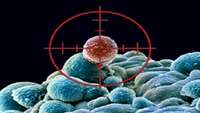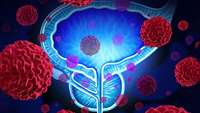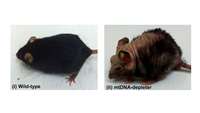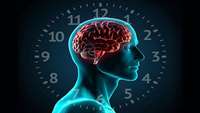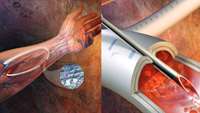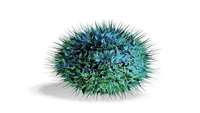Modifying the major model of a modern major mouse model
If a new anti-cancer drug shows promise in a Petri dish, often the next step is to test the drugs effect in mice. This system tends to work well with drugs that directly target cancer, but breaks down with immunotherapies.
Traumatic brain injury recovery via petri dish
Researchers in the University of Georgias Regenerative Bioscience Center have succeeded in reproducing the effects of traumatic brain injury and stimulating recovery in neuron cells grown in a petri dish.
Cellular pumps protect the gut from toxins
The master regulators of gut stem cells, called intestinal myofibroblasts, have pumps that protect them, and thus the gut, from the toxic effects of a wide range of compounds, including the anticancer drug tamoxifen, according to an investigation led by Duke-NUS Medical School.
Researchers discover system that could reduce neurodegeneration in Huntingtons disease
Neuroscientist Dr. David Vilchez and his team at CECAD, the University of Colognes Cluster of Excellence for Aging Research, have made an important step toward understanding the mechanisms that cause the neurodegenerative disorder Huntingtons disease
Anticancer drugs delivered by a new drug delivery system reduce tumor size
Cancer tissue cells are divided into two major groups: cancer cells and cancer stem cells (CSCs). CSCs are related to cancer progression and dissemination, so its necessary to eradicate CSCs in order to cure cancer.
STEM CELLS BREAKTHROUGH IN PROSTRATE CANCER TREATMENT
In what could be a major breakthrough in fighting prostate cancer, a researcher from Gitam Institute of Technology (GIT) has found that a drug used for treating coronary heart disease and stroke can control the progression of this form of cancer.
Scientists reverse aging-associated skin wrinkles and hair loss in a mouse model
Keshav Singh, Ph.D., and colleagues have done just that, in a mouse model developed at the University of Alabama at Birmingham. When a mutation leading to mitochondrial dysfunction is induced, the mouse develops wrinkled skin and extensive, visible hair loss in a matter of weeks.
How do muscles know what time it is?
Circadian clocks are present in all cells of the body, and have a pervasive influence on all aspects of human physiology. This is because they regulate homeostasis by anticipating rhythmic changes in behavior and nutritional state, and by compartmentalizing incompatible metabolic pathways within precise temporal windows.
Biodegradable and elastomeric vascular grafts enable vascular remodeling
Implanted grafts, including vascular substitutes, inevitably experience remodeling by host cells. The design of grafts capable of promoting constructive remodeling remains a challenge within regenerative medicine.
CAR-NK: Safer, Cheaper and Better Anti-cancer Drug
At the end of June this year, the CAR-NK cell, a new immune cell, was reported as the third CAR cell to fight against cancer after CAR-T cells and CAR-macrophage cells.



_112902.jpg)
_112901.jpg)
_112771.jpg)
